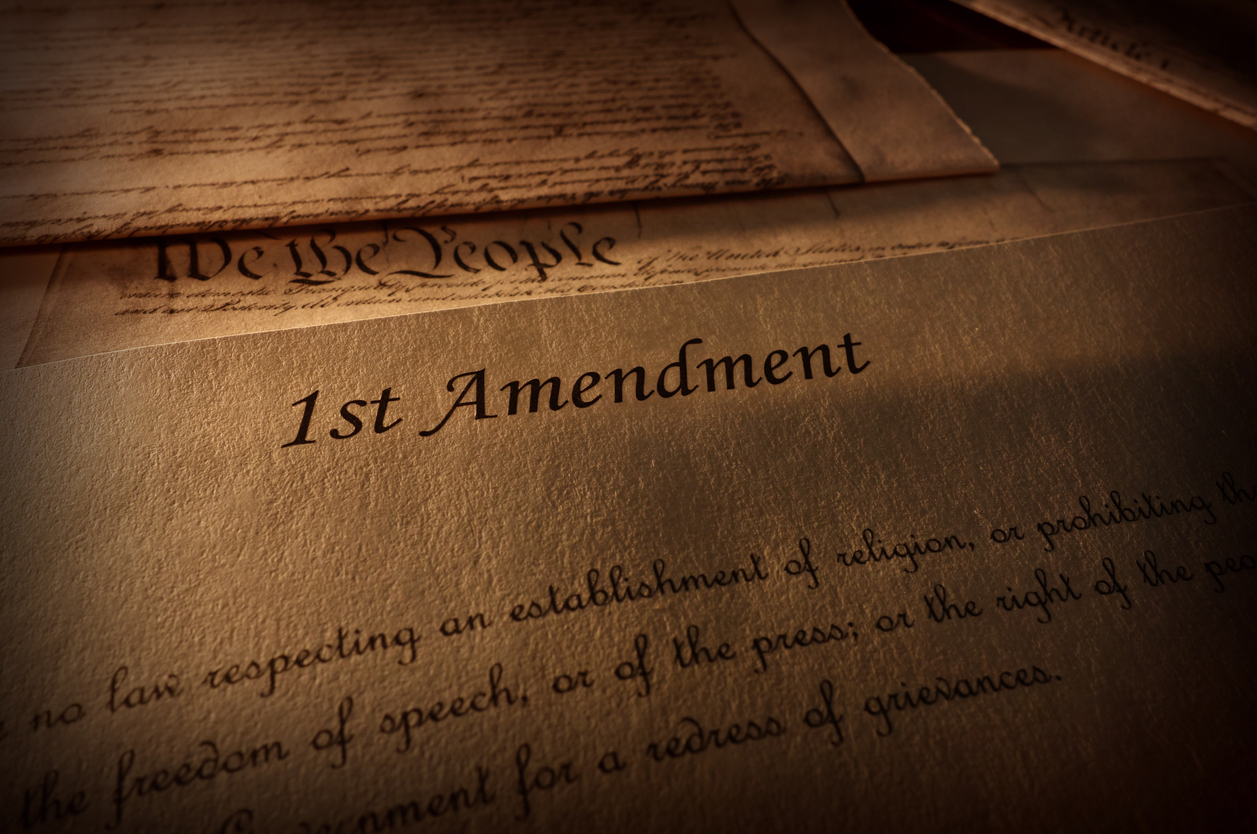There’s not much good news for traditional news media these days, but a new survey by RealClear Media suggests that most Americans see a distinction in quality between news media and social media.
Asked to choose whether they found social media to be reliable, roughly two-thirds rejected that notion and instead said that social media can often be misleading.
A similar percentage — 68.4 percent — said that news media should be able to publish articles they believe to be in the national interest, as opposed to being censored by the government for national security reasons.
The survey, released June 22, 2023, explores public views on free speech, social media and censorship.
Among other notable findings:
- A resounding total of 90.8 percent of those surveyed agreed that “First Amendment protection for freedom of speech (is) a good thing.” 9.2 percent didn’t think so.
- The chilling flip side of that finding is that 37.1 percent of those polled said speech should be legal only under certain circumstances.
- The survey abridged the First Amendment to ask respondents whether they agreed that “Congress shall make no law abridging the freedom of speech or of the press” — 86.1 percent supported the principle.
- Respondents were asked whether there is “too much freedom to speak freely, too little freedom to speak freely, or is the amount of freedom to speak about the right amount?” To this, 41.7 percent said the level of freedom was about right, 24.4 percent said there was too much freedom and 34.0 percent said there was not enough free speech.
Much of the survey focuses on postings to social media. On this point, 61.3 percent said government “has a responsibility to restrict hateful posts and disinformation” on social media.
At the same time, 55.9 percent said conservatives are “unfairly censored on social media platforms,” while 38.2 percent said the same of liberals
Perhaps because the survey was conducted for RealClear Politics, much of the the survey’s analysis and interpretation is framed in political terms, including the “finding” that Democrats are “authoritarian” when it comes to free speech:
“On the issue of free expression, at least, Republicans are not the authoritarian party. That distinction belongs to the Democrats, the party launched by Thomas Jefferson — the Founding Father who famously said that if he were forced to choose between “a government without newspapers or newspapers without a government, I should not hesitate a moment to prefer the latter.”
That’s a strong conclusion based on just six questions, one of which asks respondents whether they agree with the statement “I disapprove of what you say, but I will defend to the death your right to say it.” The study’s evidence of “autoritarianism”: “Only 31% of Democratic voters “strongly agreed” with that sentiment, compared to 51% of Republicans.”
Unless the pollsters were trying to gauge who would literally sacrifice their lives for free speech, the data establishes only that Republicans are more comfortable with hyperbole.
The problem with trying to weigh support for free speech from different political perspectives is that their definitions of free speech are also different.
Democrats are likely to be less tolerant of what they regard as hate speech and online misinformation. Republicans may be less tolerant of LGBTQ books in school libraries and drag performances.
Genuine support for freedom of speech is not static, and is buffeted by claims of censorship, “cancel culture,” “deplatforming” and even the manipulation of the word “freedom” in the rhetoric of public officials. The only way to meaningfully assess support for free-speech principles by Republicans, Democrats and independents is to assess that issue-by-issue and question-by-question.
There are other puzzling aspects to the survey. It asks respondents whether “yelling fire in a crowded theater” is a First Amendment right, to which 81.8 percent said no. The “yelling fire” phrase is widely misunderstood and is what the Atlantic recently called “America’s Favorite Flimsy Pretext for Limiting Free Speech.” Of course the First Amendment protects yelling fire in a crowded theater. It saves lives if there’s a fire. It’s “falsely” yelling fire that’s problematic. The survey makes no such distinction.
The same flaw shows up in a question about whether saying the Pledge of Allegiance in school is a First Amendment right. That has never been in question. Pledges are always initiated by the school and of course every student has a right to participate. The only First Amendment issue has always been, “Can a student refuse to say the pledge in a public school?”
Overall, the survey indicates that Americans strongly support the concept of free speech, though many are also receptive to government control of hate speech and disinformation. It’s a familiar dichotomy.
This is one in a series of occasional articles by the Free Speech Center assessing public opinion surveys on First Amendment rights. Understanding public perception of the First Amendment is critical to preserving and protecting the five freedoms that it encompasses. Surveys and polling play a particularly valuable role for those who strive to build public understanding of the First Amendment.
Ken Paulson, J.D., is the director of the Free Speech Center at Middle Tennessee State University and a professor teaching courses on freedom of expression. Jason Reineke, Ph. D., is an associate professor in the School of Journalism and Strategic Media at MTSU. He teaches classes in freedom of expression, media law, and social-science research methods and theory. He was previously the associate director of the MTSU Poll.
The Free Speech Center newsletter offers a digest of First Amendment and news media-related news every other week. Subscribe for free here: https://bit.ly/3kG9uiJ

